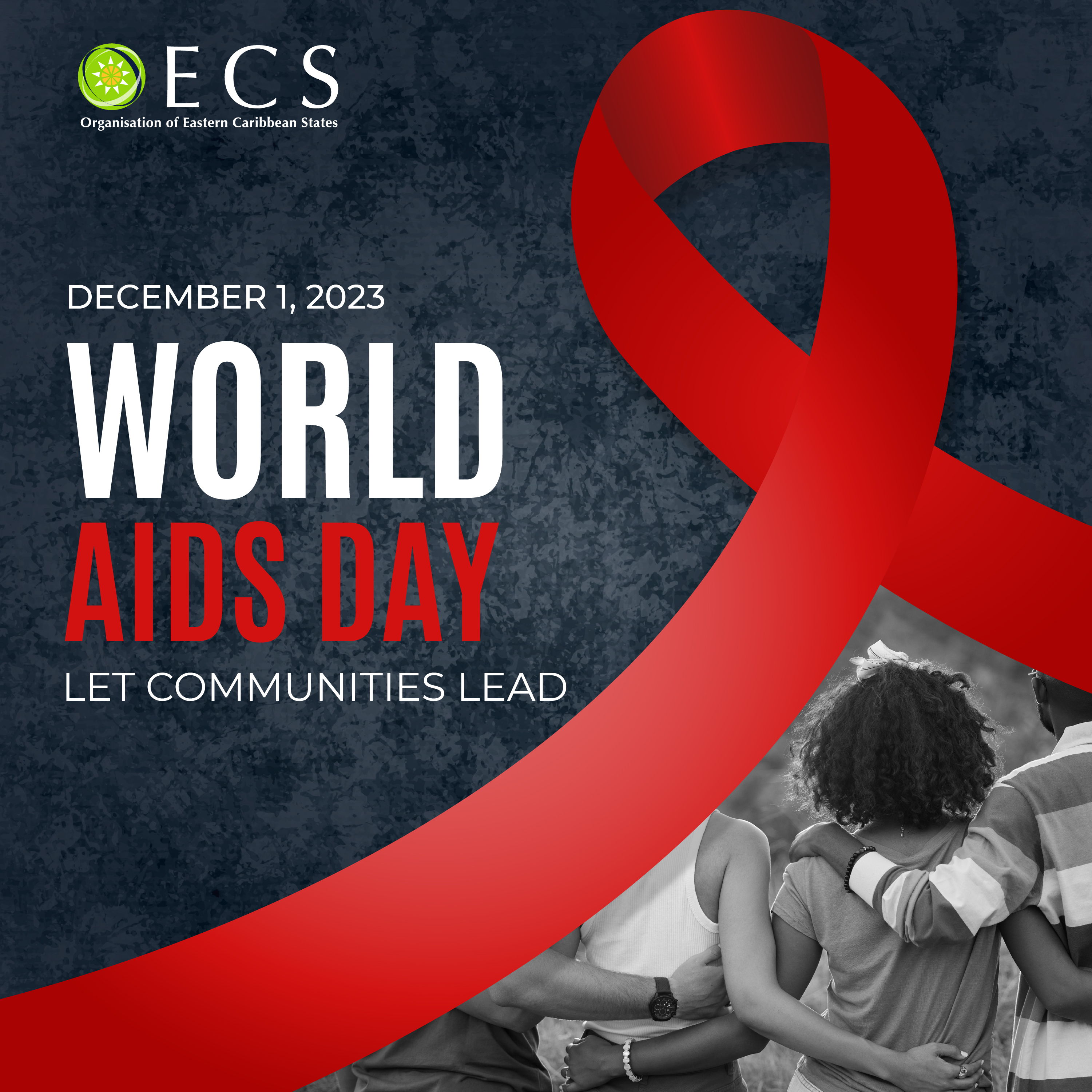World AIDS Day - Working with Communities to End HIV/AIDS
OECS Media Release
This year marks 42 years since the United States Centers for Disease Control and Prevention (CDC) documented the first cases of AIDS. Since the beginning of the epidemic, communities have played and continue to play, a vital role in advocating for the care, support and treatment of persons infected and affected by HIV. It is, therefore, no surprise that on the 35th anniversary of World AIDS Day, The World Health Organization (WHO) has chosen to mark the occasion under the theme of “Let Communities Lead” . The Organisation of Eastern Caribbean States (OECS) Commission salutes and celebrates all persons engaged in the fight against HIV/AIDS and reaffirms its commitment to support this worthy cause.
The Commission, through its HIV/TB Elimination Project (HTEP) and in partnership with The Global Fund to Fight AIDS, Tuberculosis and Malaria, works with implementing partners to provide comprehensive support to civil society organisations in the Eastern Caribbean who are engaged in the HIV response. This support, spearheaded by the Caribbean Vulnerable Communities Coalition (CVC), seeks to strengthen the capacity of these organisations to better serve persons infected and affected by HIV, and to create enabling environments in both community settings and public clinics, thereby encouraging equitable access to prevention care and treatment. It also seeks to provide redress mechanisms for persons who suffer stigma and discrimination.
In addition to community strengthening, HTEP also procures HIV testing supplies, condoms and lubricants, and life-saving antiretroviral medications (ARVs) for countries. All of this is made possible through the OECS's Pooled Procurement Services, which seeks to create economies of scale and reduce the financial burden that countries would face if procuring these commodities individually. Our partner, the Caribbean Med Labs Foundation (CMLF), works closely with countries to build capacity in HIV/STI testing as well as to improve the overall quality of laboratory services within the Region.
The OECS Commission remains committed to the fight against HIV/AIDS by collaborating with Ministries of Health and Development Partners to celebrate the hard work of communities as we strive to eliminate HIV/AIDS as a public health threat.
